- en

Think gender equality in STEM is a dream? In Lithuania, it’s a growing reality.
There’s no doubt that inclusion and diversity can be contentious topics, but it is difficult to argue the position that gender equality exists in such fields as STEM. After all, according to 2023 research put out by the International Labour Organisation, only 39% of the UK’s STEM workforce are female. Meanwhile, recent statistics presented by the WomenTek network suggest that women only make up a paltry 35% of employees in STEM in the US.
The picture in Europe is slightly rosier, where women accounted for 52% of STEM related employees in 2023. This pales somewhat, when we consider that only 41% of engineers and scientists across the EU as a whole are women. To find a much more balanced and inclusive picture, we need to look to CEE, in particular, Lithuania and its neighbour, Latvia. According to figures published by Eurostat in 2024, the amount of women employed in STEM in Lithuania was as high as 63%, with evidence suggesting that the percentage of women directly employed as scientists and engineers might reach 52% or higher, 9 percentage points higher than the EU, and almost twice that of global figures.
Lithuania – a hub for inclusion in the ICT and tech fields
As we’ve already seen, Lithuania outperforms most countries both in the EU, and globally, when it comes to gender equality in STEM fields. The success of gender diversity in tech Lithuania is particularly evident in the ICT sector alone, where female employees are expected to account for 27% of the workforce by the end of this year. So, for female specialists looking for challenging roles in the tech and ICT fields, Lithuania offers a number of opportunities.
This breadth of opportunity is most pronounced in the field of entrepreneurship, where women have enjoyed considerable success with launching their own tech ventures. The most notable stories here include Milda Mitkutė, co-founder of Vinted – Europe’s largest fashion marketplace, and Lithuania’s first unicorn. Also of note is Interactio, the interpretation platform co-founded by Simona Andrijauskaitė; and the 3D modelling marketplace CG-Trader co-founded by Dalia Lašaitė.
But it’s not only a story of successful entrepreneurs, Lithuania’s STEM ecosystem also incorporates a host of female executives who are running the show. From Victoria Trofimova, CEO steering the gaming company Nordcurrent. Meanwhile, the CEO of Sumup EU is Sigutė Kuncevičiūtė, and the CEO of Wix.com’s Lithuanian operation, Monika Laukaite. Then there is the female talent that is making waves in the country’s well-developed business services sector, where 50% of senior executives are female – testament to the growing number of leadership roles for women in Lithuania’s tech ecosystem.
Internationally recognised Initiatives making it easier for women to excel
There’s a reason why women in tech are performing so well in Lithuania. Support. Leading here is the Women Go Tech initiative, which is now in its eighth year. Its mission is to provide mentorship for women looking to reskill (or upskill) in the lucrative ICT field. As Žydrūnė Vitaitė, one of the architects of the scheme explains, the origins of the scheme arose from personal experience:
“I have an education in Economics and Business, and I started working in tech companies – very hard tech, telecoms and so on – which was very challenging for me to navigate. I had not met any lady in tech in the Baltics for three years in a row in my specific area, which was telecoms antennas and infrastructure sales. Not a single one, and it was quite challenging for me. Lithuania at that time was also experiencing a large shortage of tech talent. Together with the regional ICT association INFOBALT, we decided that we needed to do something.”
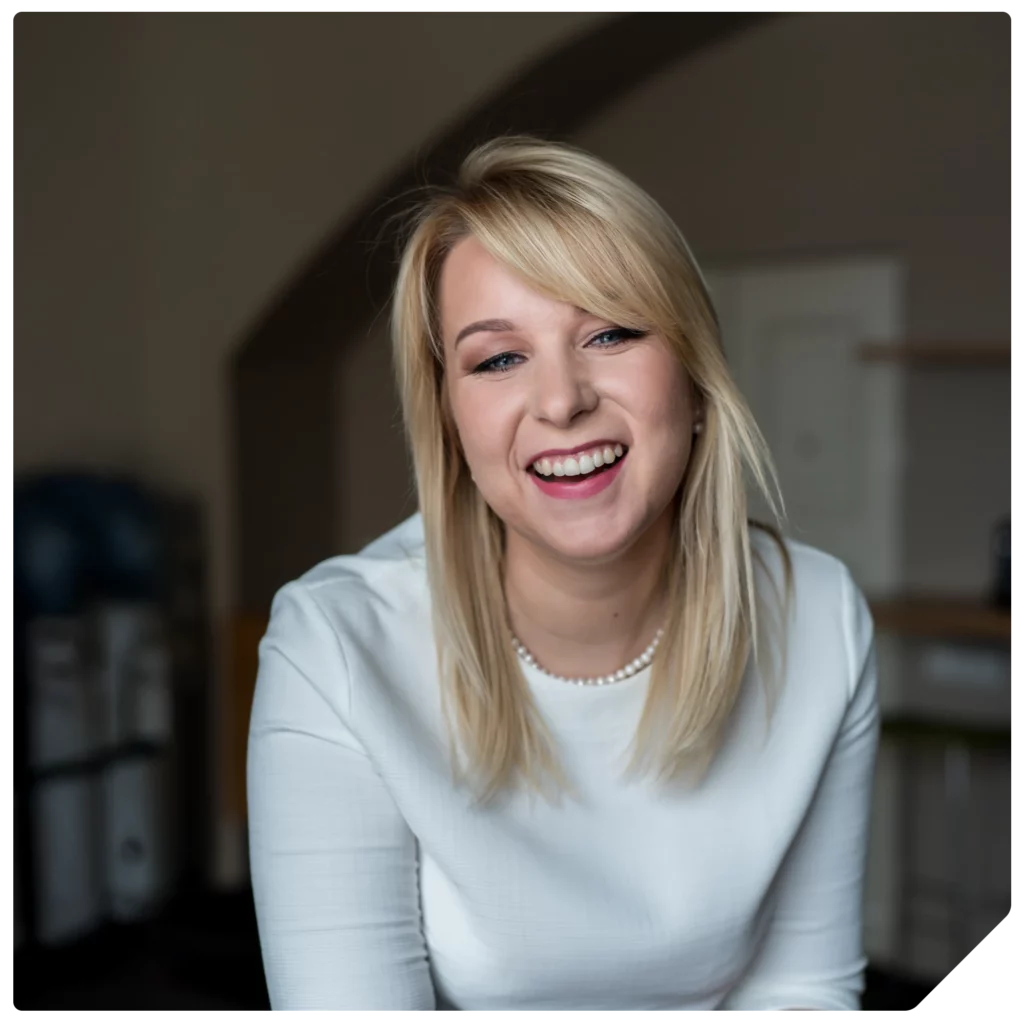
Their first mentorship program was introduced back in 2017, and the basic model of the program has remained unchanged.
“It’s a six-month mentorship program. We invite women who are willing to re-qualify for tech, and whose willingness is expressed by certain steps that they already took before the program. Either they joined some courses, went to coding school, or did something that demonstrates their readiness to continue the journey and readiness to be invested.
We have a selection process where the most motivated applicants are selected – we have a few people usually applying for one spot. Mentors are then matched with women who are selected for the program. It’s a self-matching process with various systems for it.
Mentors are responsible for supporting mentees in their learning journey and facilitating their goal achievement. Our mentors don’t teach directly. They are there to question the applicants goals, support them with networks, encourage them not to drop out, and in some cases, mentors work slightly as psychologists in boosting motivation and self-confidence.”
The role of Women GoTech is about giving people the belief that they can succeed in tech fields, and then the inspiration and support that they need to make their goals happen. As Žydrūnė explains:
“We always say that we have recommendations for where you can go, and we recommend them through mentor networks. We also recommend online courses and physical schools. Very often we have – at least in the earlier days – candidates who already have so many certificates but haven’t applied to any company because they think it’s not enough. So there’s the mentor’s role to say, “Hey, it’s time to apply and start working.”
“Right now we do some expert events and interviews, but they are more about industry trends and current realities – it’s not hands-on training. We recommend them to go elsewhere and definitely provide recommendations and guidance. We also have a community that supports the women who are in the program with various advice, recommendations, and so on. It’s a facilitated community.”
And the results speak for themselves.
“Today there are 800 women in Lithuania who started working in tech through our program. In our first years, we had a success rate of 65% for those who joined our program – they started working in tech. Right now we do provide it online for Central and Eastern Europe, so it’s way bigger, and we have a success rate of around 52-54% of those who join our program and then continue working in the tech environment. The hiring landscape has changed significantly.”
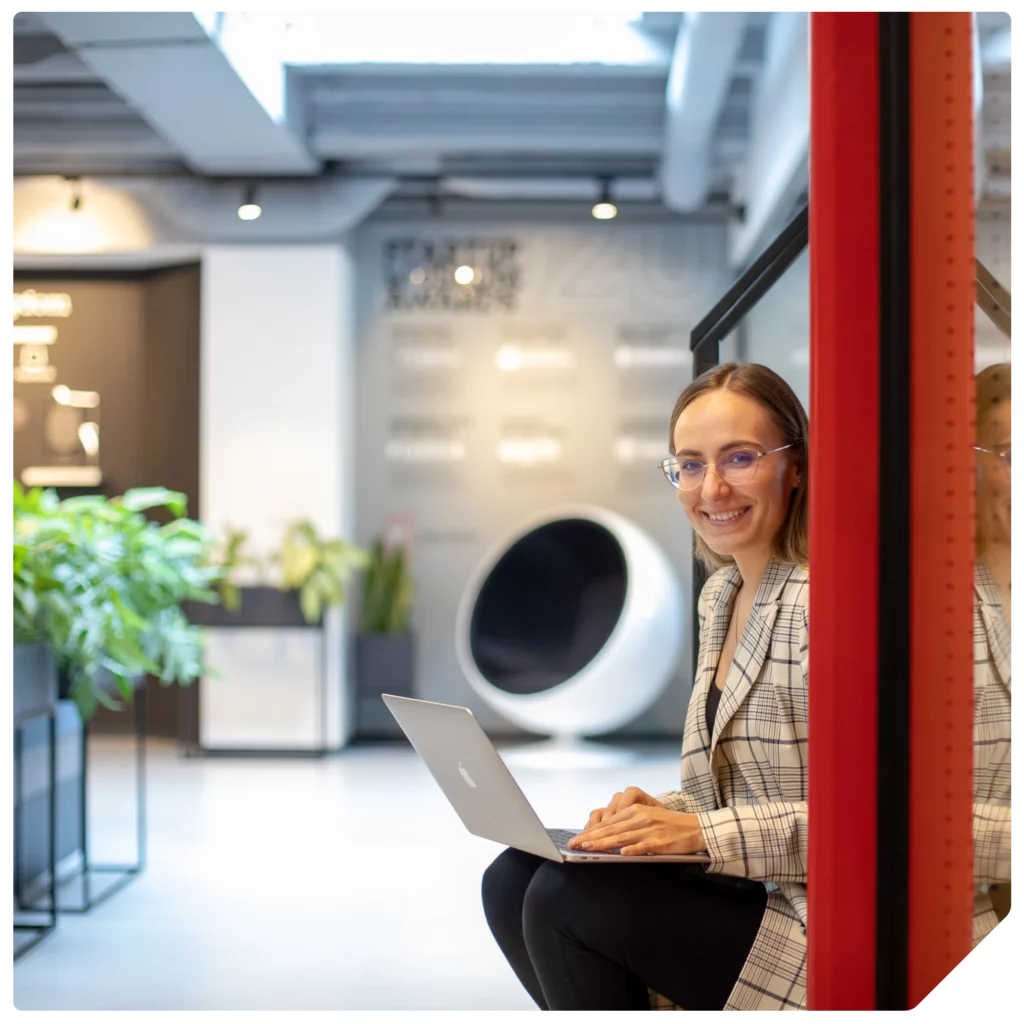
Not only that, as Žydrūnė is quick to mention, the scope of the roles on offer is truly broad:
“Tech is not only about front-end, back-end, or full-stack development. Tech is also about product management, data analysis, project management in tech, quality assurance, and so on. There are lots of applicants who maybe studied social sciences or something similar, but they are still very capable – maybe not of coding, but of working in the technology sector. Or maybe they already joined coding courses and are struggling to find their first job because, funnily enough, their self-confidence isn’t there yet in trusting their skills. Our job is to show them that there is a role in the tech ecosystem for them as well. There are lots of specialties where women can succeed very well in the technology industry, because eventually all companies are going to become tech companies with different specialties and subtopics.”
As is evident from the results, the initiative is working, and what’s more, by adding more countries to its remit, it’s gaining traction and offering opportunities not just to Lithuanians.
“Our program is in English, so there are definitely more participants who don’t speak Lithuanian. I would need to get the names and understand where they’re from. We also talk with our sponsor companies about whether they’re interested in talent only from Lithuania, and that would be the minority of our partners. They’re also very interested in hiring foreigners, hiring remotely, or working with a broader target audience. That’s why we do it – because we believe that in Lithuania, the talent pool is just too small. We have to open up and attract talent, but we have great companies and great ideas. We want this to be more flexible.”
The international flavour of the initiative is reflected in some of the recognition it has been attracting – just last year, it received an award in the NGO sector for the best recognised ICT female initiative, or Digital Skills Award. And it has received backing and support not only from the Lithuanian government and the business community, but also the seal of approval from the previous Lithuanian President, Dalia Grybauskaitė.
As with any initiative, though, its real impact lies in the success stories of those who have discovered new careers with the support of the programme. Take the story of Amit Goldman, EMBA. She was leading the acquisition of international patients at a successful private health clinic when she was approached during Covid to become part of the team launching a new HealthTech startup. The only problem? She went to a medical school and so she was lacking the in-depth ICT knowledge that she felt she needed to fully embrace this new career path, and she only had two months to fill in those gaps. This is where WomenGoTech stepped in, as she explains:
“I decided to take the course during that transitional period because I needed to understand the language of tech. The course proved invaluable for several reasons. First, it connected me with a fantastic community of people who were navigating similar journeys into tech, which provided incredible support and shared learning.

Most importantly, the course demystified all the technical terminology that had seemed like foreign language to me—APIs, UX, UI, and countless other concepts that I didn’t even know existed. Without understanding these fundamentals, I couldn’t possibly succeed in the field. The course transformed what felt like intimidating tech terms into comprehensible tools and concepts. It was genuinely exciting to finally understand the building blocks of the industry I wanted to join. Thanks to my mentors I got a grounding in essential tech areas—AI, cybersecurity, business analytics, project management, product testing, UX, and programming. The product testing module, UX/UI part, proved especially valuable when I later conducted testing sessions with physicians for a product we were building.”
These days Amit divides her time between acting as an advisor to numerous HealthTech startups and venture capital funds dedicated to her industry.
Women in STEM in Lithuania: Innovating in their fields
But this is not only a story about ICT. The Lithuanian government has designated the Life Sciences sector as strategically important to its growth goals. At present, the sector accounts for around 2.6 to 2.7% of the country’s GDP, and the government is focused on elevating that contribution to 5% by 2030. Leading the way in the promotion and recognition of Life Sciences in Lithuania is Urtė Neniškytė, a Cambridge University-educated Neurscientist, who heads up a group at the VU-EMBL Partnership Institute. She is also very much an ambassador for gender diversity in STEM having won L’Oreal-UNESCO Women in Science Fellowship on 26 May 2017 (the first Lithuanian to do so). She was also one of 15 laureates of the 2019 L’Oreal-UNESCO Women in Science International Emerging Talent Award.
In her opinion, Lithuania would be a great destination for any researcher looking for career opportunities.
“I know from speaking to colleagues that many nations are facing funding challenges. Lithuania is a good alternative, because here the Life Sciences sector is one of its industries that the government is focusing on strategically. Not only that, everyone speaks English, which makes integration easier. I’ve seen lots of instances where researchers even buy homes here – they come for a project and decide to stay. Lithuania has a quiet charm that’s easy to underestimate until you experience it.
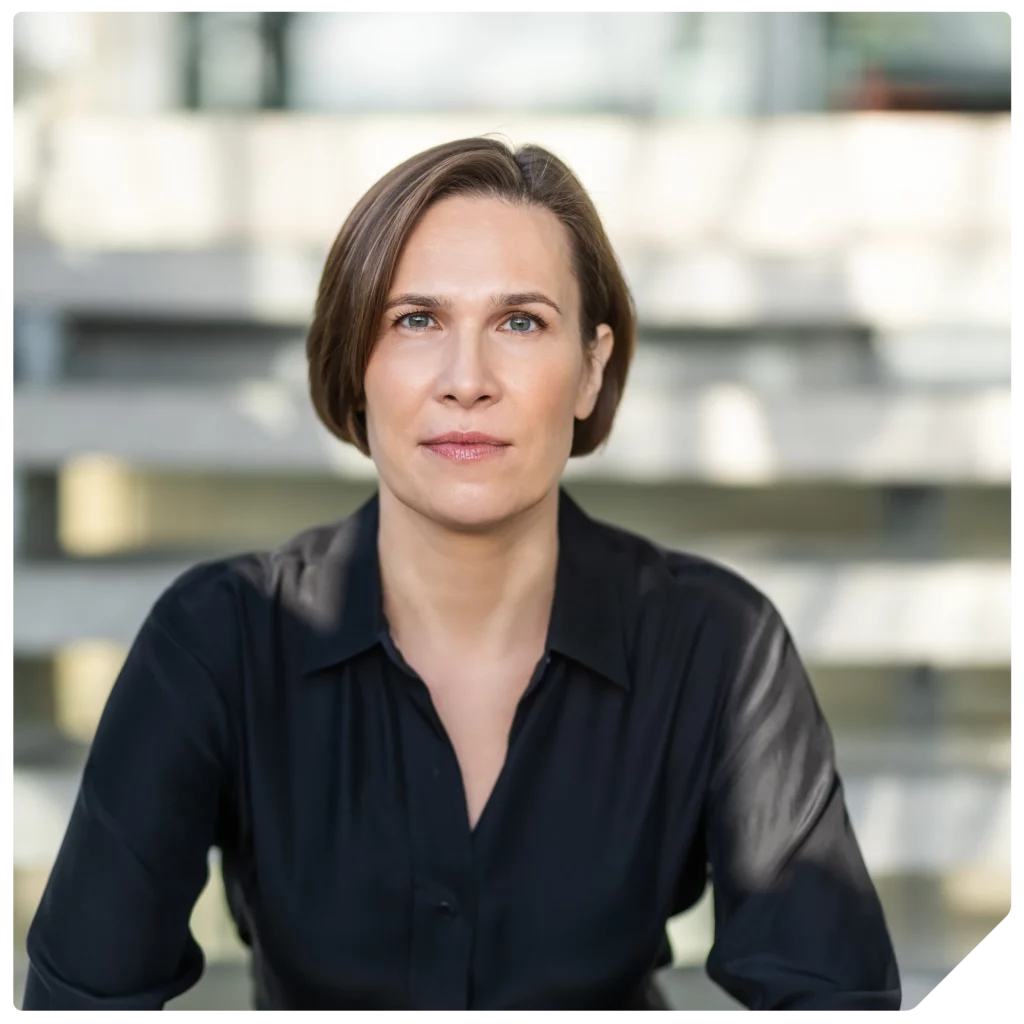
I often bring collaborators to visit so they can see the environment for themselves. When I returned to Lithuania, I received a “Women in Science” prize, and a video was made about my work. My colleagues in Italy were surprised at how advanced and international our institute looked. And beyond the institute, the city itself – Vilnius – is very clean and welcoming. Visitors often comment on that.”
The size of the sector also makes collaboration and innovation easier:
“Since Lithuania is a small country, there’s an impression that we have a limited number of researchers and a narrow range of expertise, which would suggest limited opportunities for collaboration. But actually, the opposite is true. You end up knowing everyone – not necessarily personally, but through someone else. If I need to get something done, I usually know the exact person who can help me. The research community is small and people are very open to collaboration.
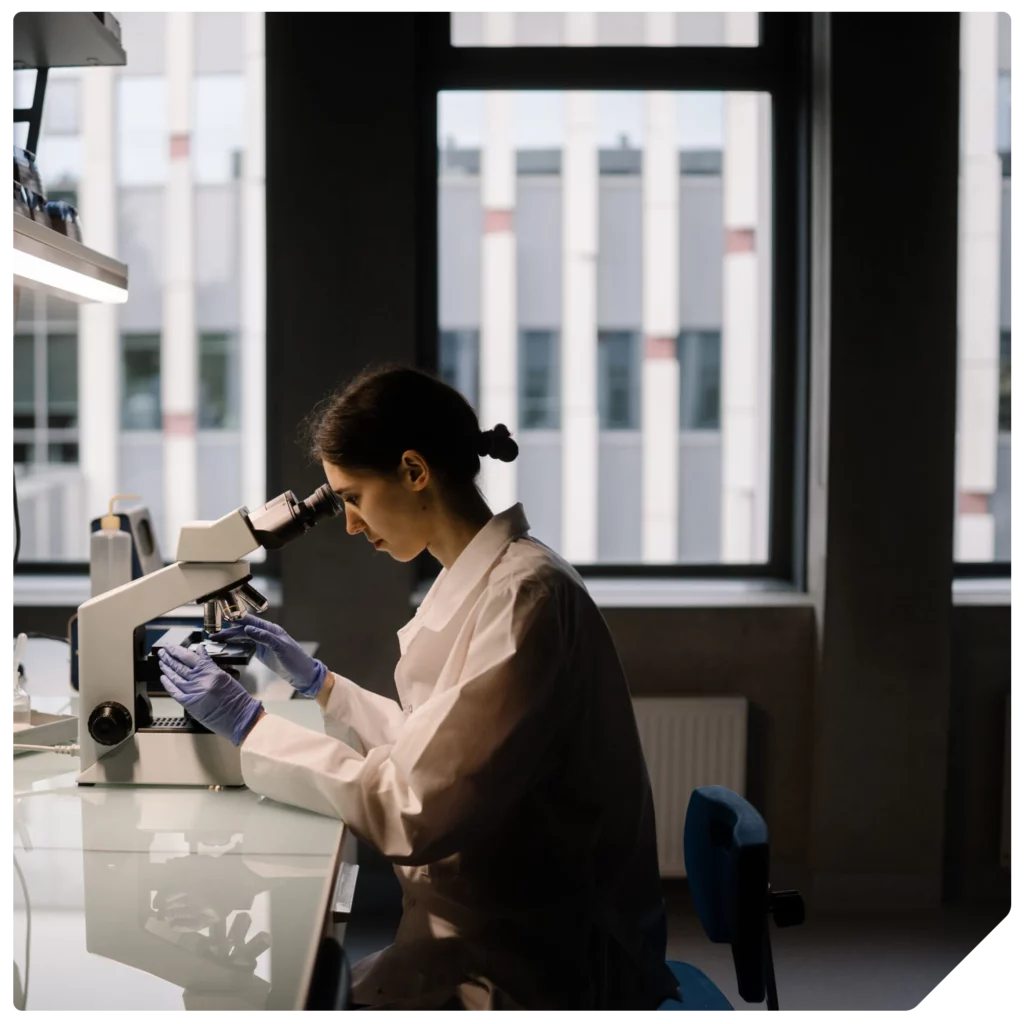
When I returned to Lithuania, I thought maybe this was just my experience. But in 2021, we established the Europe Partnership Institute between Vilnius University and the European Molecular Biology Laboratory. We had researchers joining us from the U.S., Germany, Chile, and Italy. They all shared the same experience. It was surprising, because you’d think a place like Germany – with its established research system – would offer more collaboration. But sometimes researchers there are overwhelmed with requests. In contrast, being in a smaller, self-contained research environment like Lithuania can actually foster more meaningful collaborations.”
What makes Lithuania a great place to build your career
As we’ve seen, as a woman looking to kickstart a career in the competitive world of STEM-related industries, Lithuania is a great destination. Not only does it have rich resources for career support and development, but also a thriving ICT and life sciences sector. The country is the base for such homegrown unicorns as Nord Security and Vinted, both of which have sizable presences (and opportunities available) in the capital city, Vilnius. It’s also where the headquarters of online gaming giant Wargaming is located, and home to one of the largest European Western Union operations, all of which boast a truly international workforce, as well as leadership roles for women.
Then there is the burgeoning startup scene that is clustered around hubs like Vilnius Tech Park, where natural splendor meets high tech in the gorgeous surroundings of an old baronial manor. For those looking for more cosmopolitan and cutting-edge surroundings there is the soon-to-be-launched Tech Zity campus, which will be a small city to itself.
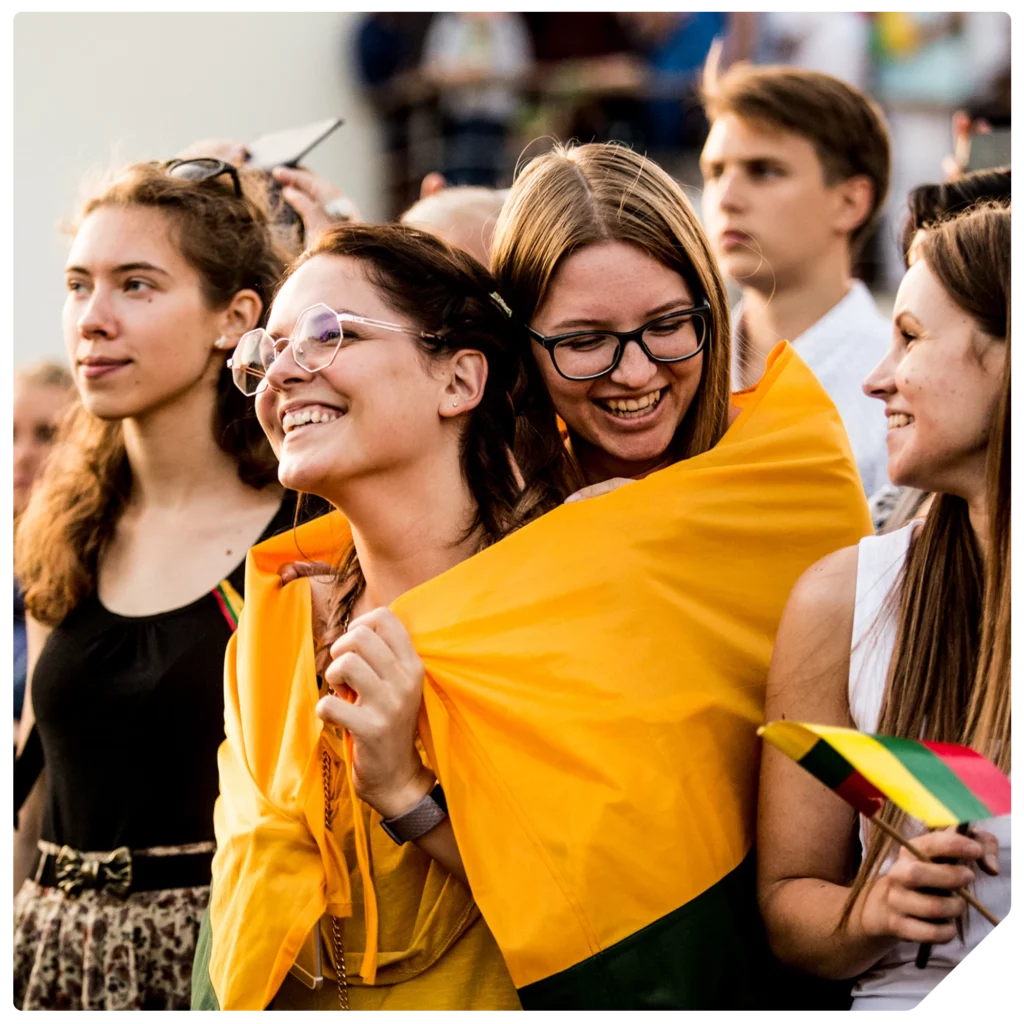
It’s also an affordable base for career growth. A one-bedroom flat in the centre of Vilnius is around EUR750, while a similar flat in Warsaw will cost EUR985. For an either starker comparison we call look to London, where a one-bedroom apartment in the city centre will set you back EUR2562. That is only part of the picture, the country can also provide a great work/life balance, this is, after all the country was voted the happiest place in the world for the under 30’s in the 2024 World Happiness Report. Meanwhile the OECD Better Lifer Index ranks Lithuania at 11th globally among OECD countries when it comes to work-life balance, with the same report showing that only 1% of the population work long hours.
Professionals arriving in the city needn’t worry about settling in. Vilnius, for example, has International House. This is a government initiative set up to help new arrivals acclimate to their new home. You will receive support and advice on everything from how to access essential services like healthcare, register yourself, set up a bank account, and will even invite you to networking events where you can meet new people. There are also popular internet forums like Foreigners in Vilnius, where you can meet new arrivals like you and get advice on everything from where the best coffee in town is served to how to find the best flat for your budget.
If you are looking to either start or accelerate your career in STEM, and find that your current opportunities are limited, it just might pay to consider Lithuania.